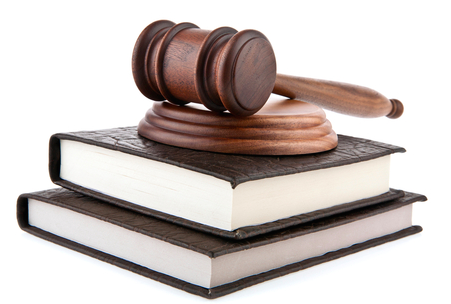Legal
Appleby Suing BBC, Guardian Will Put Public Interest Defence Through Its Paces

The Bermuda-based law firm earlier this week took legal action against two of the UK's most prominent media outlets over their reporting of the "leaked" Paradise Papers.
Appleby is taking
legal action against the BBC and the Guardian
over their reporting of “leaked” documents that shone a light on
how the wealthy use offshore structures to obtain tax
breaks.
The Bermuda-based law firm is suing for breach of confidence and
wants the documents, dubbed the Paradise Papers, disclosed.
Appleby reportedly said confidential information had been taken
in what was a “criminal act”.
The BBC and the Guardian, both of which are
UK-based media outlets, have said they will “vigorously” defend
their actions, as the documents were shared in the “highest
public interest”.
At the time of writing, Appleby had not issued a
statement.
“Appleby’s decision to sue the BBC and the
Guardian for breach of confidence is highly significant
as it will be a major test case regarding the attitudes of the
English courts,” Euan Grant, a consultant at Grant and
Gutsell, a tax and financial crime consultancy, told this
publication.
Public interest defence
Appleby’s move will undoubtedly prompt questions over whether the
documents were obtained legally.
While the majority of mainstream media houses said the documents
were “leaked”, it has been suggested that they were, in fact,
stolen from Appleby’s data vaults.
If this was the case, then the BBC and the
Guardian’s legal defence would likely rely heavily on
the public interest element, meaning they would have to prove in
court that the gravity of the documents’ contents warranted the
use of any illegal methods used to obtain them.
“It is likely that the defendants will indeed counter with the
powerful corroboration of their public interest defence,” Grant
said. However, “in the age of the internet, the request for the
return of the documents is unlikely to be of great significance,
given the considerable time which will have elapsed between the
data coming into the possession of the media and the final court
judgement.”
He explained that a pivotal point in the case could be the
prospect of “significant damages” being awarded to Appleby, as
this may “in future limit the media’s willingness to receive such
information, given that they would not be able to shift the
responsibility to hackers or intermediaries without revealing
sources – a journalist’s ultimate taboo”.
Last month, a leading London-based tax lawyer spoke to this
publication about some of the legal implications of the Paradise
Papers scandal.
“It would be very surprising if the affairs of those individuals
concerned were illegal or nefarious; it is the theft of the
papers that is illegal,” Miles Dean, managing partner at
Milestone Tax, told this publication shortly after the documents
were exposed. “Just because an individual makes an investment
that is based offshore does not mean that they have done anything
wrong. If they fail to disclose it - and the return they make -
on their tax return, then that’s tax evasion. But to make the
quantum leap and suggest that everyone from the Queen to Bono is
dodging tax because some of their investments are made via
Bermuda, Cayman or Malta is stupidity on a grand scale.”
As with last year's Panama Papers, the Paradise Papers were
obtained by the Washington DC-headquartered International
Consortium of Investigative Journalists (ICIJ) and shared
initially with German newspaper Süddeutsche Zeitung.
There are now nearly 100 media groups scouring the documents.
This publication has not seen the documents, however.
Last month, Appleby defended itself against the claims of
malpractice before the documents were made public. The firm said
it had “thoroughly and vigorously investigated the allegations”
and found no evidence of wrongdoing in-house or among its
clients.
“We refute any allegations which may suggest otherwise and we
would be happy to cooperate fully with any legitimate and
authorised investigation of the allegations by the appropriate
and relevant authorities,” Appleby said. The firm also has
offices in the British Virgin Islands, the Cayman Islands, the
Isle of Man, Jersey, Guernsey, Mauritius, Seychelles, Hong Kong
and Shanghai.
“Appleby’s clients would be well advised not to place too much
hope in these actions,” Grant said. “It may well be more a case
of the firm sending a loud message saying: ‘At least we
tried’.”
Initially, UK media was abuzz around claims that that those
acting for Queen Elizabeth II made investments in a Cayman
Islands fund through the monarchy’s private estate, the Duchy of
Lancaster (source: Guardian newspaper). Around £10
million ($13 million) of the Queen’s private money was invested
offshore, raising questions about whether the monarch should be
using tax-efficient structures. The Duchy said it was not
involved in decisions made by funds and there is no suggestion
the Queen had any knowledge of investments made on her behalf,
according to the BBC.
The ICIJ said its trove of data “reveals offshore interests and
activities of more than 120 politicians and world leaders” and
exposes the “tax engineering” of “more than 100 multinational
corporations, including Apple, Nike and Botox-maker Allergan”.
To view a related article by a Geneva-based academic about the Paradise Papers, see here.
